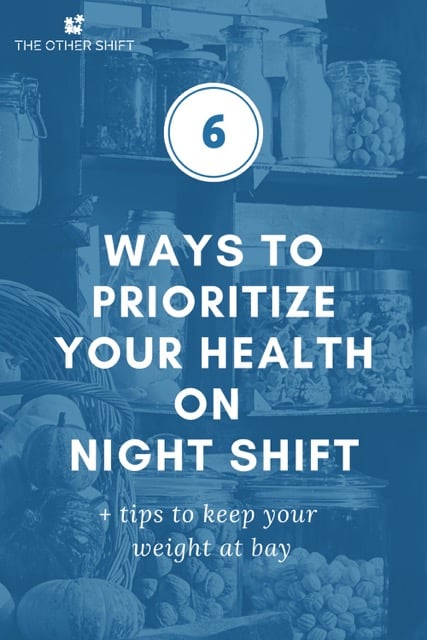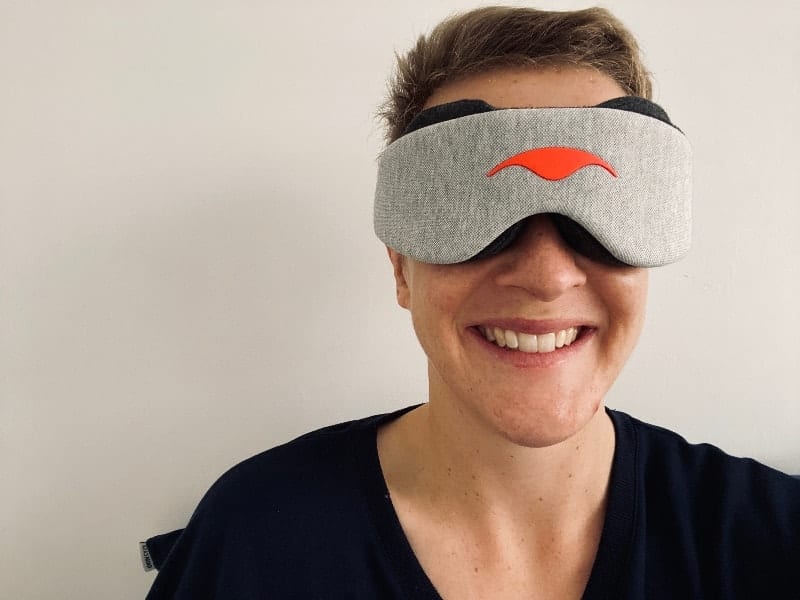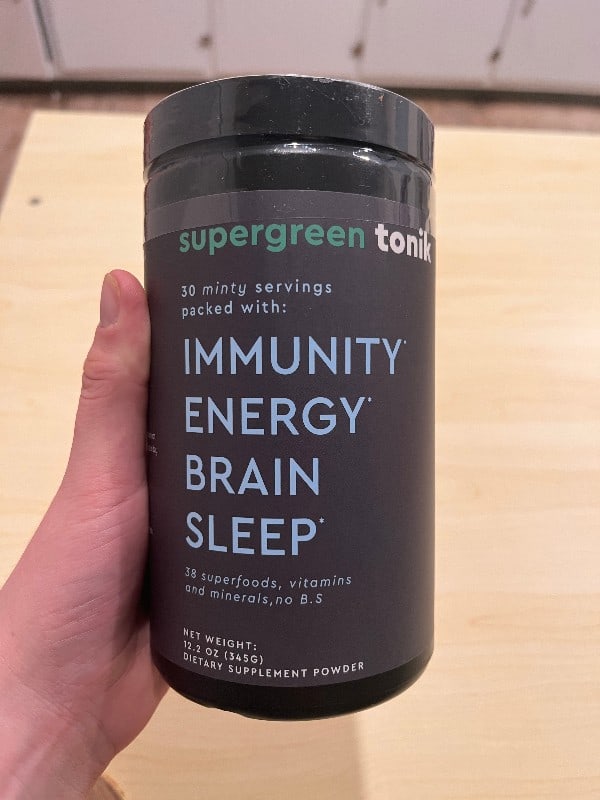Disclosure: This page may contain affiliate links, meaning we receive a commission if you decide to make a purchase through our links, but this is at no additional cost to you. Please read our disclosure and privacy statement for more info.
Your night shift could be what’s holding you back from losing weight. We spend a third of our lives asleep—for good reason. When your conscious brain is resting, your body works to rejuvenate sore muscles, repair organs, and regulate your hormones. However, our article on night shift side effects notes that your work pattern regularly disrupts your sleep’s natural circadian rhythm. This disturbs your digestive tract’s normal schedule and heightens your cortisol levels, making you hungrier during the day and pushing you to overeat.
Minimize temptations and create new habits by surrounding yourself with positive people in a healthy environment. Consider taking anti-obesity medications, work exercise into your schedule consistently, follow a healthy meal plan and enjoy the sun where possible,
Fortunately, this is one challenge you can overcome, even if you’re already obese. According to a 2021 study, your lifestyle choices can play a mediating role between your work and your weight. With the right interventions, you can successfully manage both. Here are five tips on how you can do just that.

Create the Ideal Sleep Environment
The fatigue from your night shift won’t always be enough to get you to sleep once you have the opportunity, unfortunately.
You might be tempted to stay up longer and engage in revenge bedtime procrastination, doing leisure activities at the end of the day at the expense of some well-needed slumber. This puts you at risk of sleep deprivation and consequently may worsen your food cravings and obesity.
To keep temptation at bay, create a welcoming environment that invites you to head to sleep as soon as you get to your bedroom. This could look like;
- Make an agreement with your family beforehand to ensure peace and quiet when it’s time for you to rest.
- Set the temperature between 65 and 70 degrees, which mimics the nighttime drop in temperature that signals your body it’s bedtime.
- Block out as much as possible with blackout curtains and an eye mask. Below we show the products we use and love, Swanwick Blue Light Blocking Glasses and mask from Manta Sleep
- Finally, minimize gadget utility by keeping your electronics in another room and leverage an analog alarm clock to alert you when it’s time to rise.
Minimize Temptations and Know Your Triggers
Surrounding yourself positive, health conscious people and minimizing tempations in your cupboards and lunch box is a great first step in tackling obesity.
Studies such as the one conducted by The New England Journal of Medicine, discuss the power our social network has on obesity levels. Whilst simply ditching your friends who like to eat a burger over a salad isn’t necessary, it’s still worthy of a thought.
How healthy are those around you and those you watch on TV?
If you were to open your cupboards, glove box in your car and lunch box would you find an array of healthy foods or ones you don’t want to admit you’ve bought?
Like most things, sugar and unhealthy personalities are okay in moderation, just be mindful of when they are leading you astray.
If your pantry needs a refresh, start with these 16 best foods for weight loss.
What’s also interesting to consider is what influences you to make unhealthy choices? Is it stress? Bordom? Or something else. Have a think about yours and what active steps you can take to make them less obvious. This post can help you do this.

Enjoy the Sunshine Whenever You Can
The harsh reality of life as a night shift worker is you’re at risk of Vitamin D deficiency—an essential vitamin in fighting disease and helping weight management.
While more sun exposure is usually the answer, remember that you must limit going out to the sun after you finish work in the morning to get better sleep, as the brightness and heat of the day may indicate to your body that it must stay alert.
Instead, spend some time outside between 11 am and 3 pm when on a day off. This allows you to avoid the late afternoon sun, which has the most intense UVB rays, and get energized by the light exposure when it’s time for you to be awake.
When working, you may be waking up in the mid/late afternoon making the above recommendation tricky. Going for a brisk walk when you wake or even something more vigorous outside, even if it’s cloudy is better than nothing. There are lots of great apps out there to check the UV rays at any one time, such as the Sun Smart app in Australia so have a browse of your app store.
Additionally, it might be best to take Vitamin D supplements to boost your health. Here are the best ones on Amazon.
As you can see, getting enough sunlight is not straightforward. If you’d like some extra help and guidance, this post can help show you.
VIDEO – Adjusting from Day Shift to Night Shift Effortlessly has a few extra tips.
Work Exercise into Your Schedule
Fitness can be difficult to maintain when working night shifts, so be adaptable. We must get used to exercising when tired because those feelings may never go away, or for quite some time!
The World Health Organization recommends dedicating a minimum of 150 minutes of moderate-intensity aerobic activity every week to work toward a healthy body weight. You can split up those 150 minutes to suit your night routine and current fitness capacities.
If you can squeeze in an hour-long yoga session before your shift, that’s 60 minutes done with the benefit of an enduring mood—and an energy boost to boot. You can also divide your 150 minutes into 10 to 15-minute exercise bursts throughout the day.
Half of your 20-minute lunch break, for example, can go to speed-walking outside your office, or you can hold a plank position for a minute at a time throughout the week. Be flexible with your exercise to control weight gain.
We talk a lot on this site about exercise and how to get enough. This post lists the reasons why you should ditch the gym and exercise at home and this one, this one is for the body builders working 12 hours shifts and this one talks about if we should sleep or work out after a night shift.
The takeaway here is movement. Just try and move your body every day – that’s not just walking slowly or bending down to tie your shoes!
This video I recorded about exercise walks through how I fit it in.
Follow a Healthy Meal Plan
When working night shifts, the most convenient food options tend to include vending machines, limited cafeteria cuisine, or 24/7 fast food restaurants and convenience stores. I think we can agree, these usually don’t offer the best choices to help your weight management or weight loss goals, especially since your body metabolizes food inefficiently at night.
Counter this by making a dietary plan to cope with your body’s disrupted nighttime processes. You can pack balanced lunches consisting of weight-loss-friendly foods like whole grains, vegetables, and fruits in the form of sandwiches, fruit yogurts, and salads for quick and easy assembly. Here are some delicious snack suggestions.
You can even collaborate with your teammates: coordinate a rotating snack schedule and take turns purchasing healthy options for the group at a local store, encouraging variety as well as a fun and more nutritious food culture.
Additionally, you can eat early on in your shift to help your body digest food without disrupting your biological patterns too much. Formulating a strategy that gives your body the nutrients it needs can help you better manage obesity despite the late working hours.
If trying to eat healthy foods consistently makes your head hurt, drink HumanTONIK. It’s a red or green power you add to water which I like to think fills the gaps in what you may not have consumed. We’ve tried a whole bunch and this one is by far the best.
Alternatively, When Should I Eat on Day Shift? Your Stomachs Perfect Guide is a great post to read next if you want to learn more and this YouTube video will help too.
Take Anti-Obesity Medications
Your night shift pushes your biological patterns against your favor. This may be especially true for you if you have weight-related complications like diabetes or are genetically predisposed to weight gain. To alter that, you can take anti-obesity medications—prescription drugs that combat weight gain.
Medications with the agonist GLP-1 for weight loss are especially effective, allowing you to lose an average of 15% of your body weight by curbing your appetite, controlling your insulin and blood sugar, and raising your resting metabolism. Some medications that have this agonist are Wegovy, Ozempic, and Rybelsus.
If you have a BMI of 30 or more and are officially considered obese, you can safely take these medications for more effective weight management. Just note that these medications are not recommended for pregnant women who were previously diagnosed with angioedema or have a family history of certain cancers—so consult your doctor first if you want to ask for a prescription.
Keep reading – Does Shift Work Make You Fat? 14 Tips to Avoid Weight Gain

Being a night shift worker makes obesity management strenuous, but making choices that lead to a healthier life is possible. Try following the above tips to get started.
Next up, if you work nights and feel like you’re in a rut, this one is perfect for you.
Good luck,

Disclosure: This page may contain affiliate links, meaning we receive a commission if you decide to make a purchase through our links, but this is at no additional cost to you. Please read our disclosure and privacy statement for more info.

Recent Posts
I never really understood why shift work was linked to weight gain any more than a typical 9-5 job. Surely, by simply working an irregular schedule, our waistlines can't be impacted that greatly? I...
Working 12-hour night shifts doesn't leave much time for healthy meal planning or hitting the gym. So how are you expected to lose weight while working these long, tiring hours?




